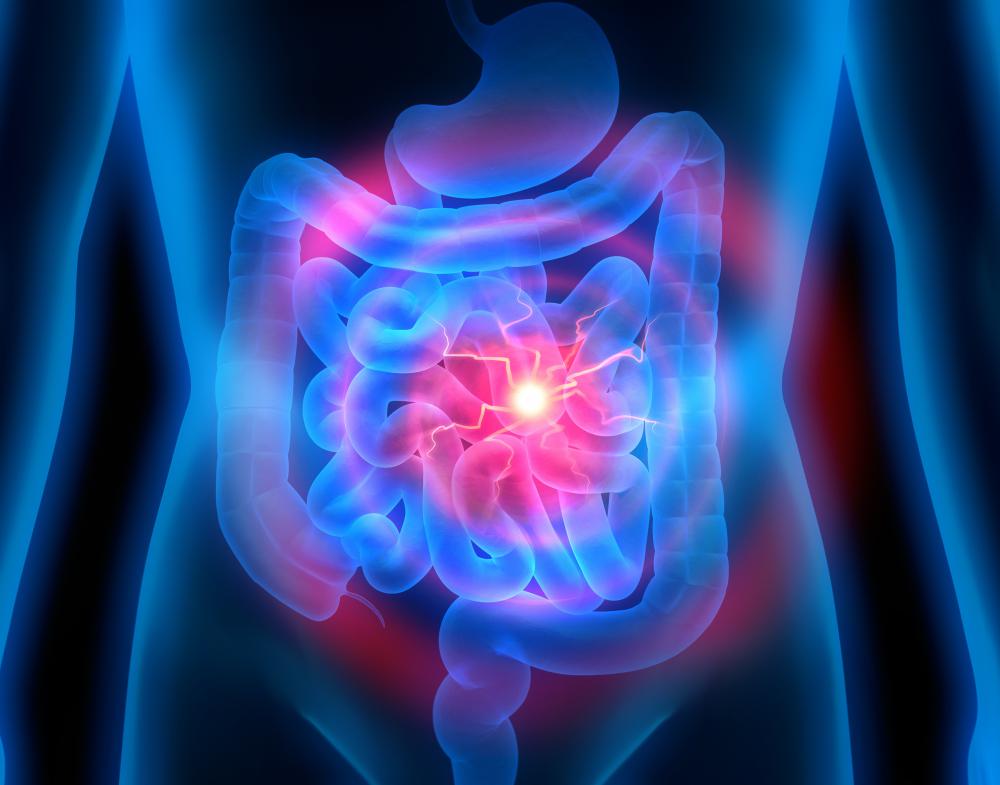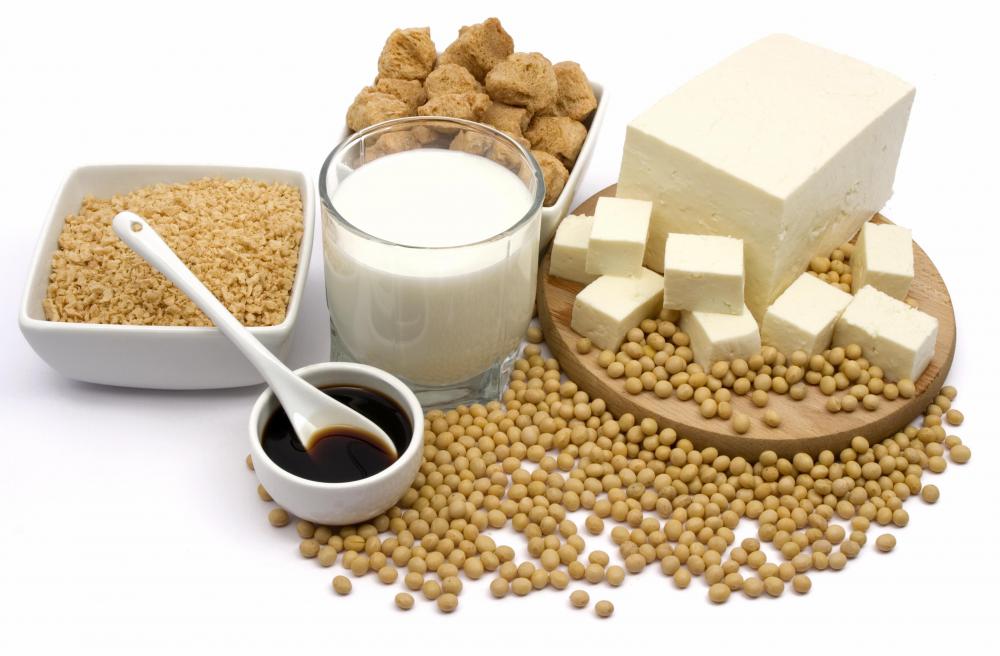At TheHealthBoard, we're committed to delivering accurate, trustworthy information. Our expert-authored content is rigorously fact-checked and sourced from credible authorities. Discover how we uphold the highest standards in providing you with reliable knowledge.
What Are the Different Types of Protein Intolerance?
Protein intolerance, or the inability of the body to digest proteins found in milk, soy products, meats and grains, typically presents itself in early life, though many patients are not diagnosed until they reach adulthood. While protein intolerance is often confused with an allergy, because many symptoms present as an allergic reaction, it is actually the result of certain proteins causing damage to the digestive tract. There are four known protein intolerances: cow’s milk intolerance, soy intolerance, celiac disease and lysinuric intolerance.
From birth, almost all humans are cow’s milk protein intolerant, which is why doctors and medical organizations highly discourage the introduction of cow’s milk to children under the age of 1. Human babies are not meant to process the high levels of the two proteins present in cow’s milk, whey and casein. Rather, they are born needing only the small amounts of protein found in human breast milk. While most children outgrow this intolerance as their digestive tract matures, many do not, and require a lifelong diet of restricted consumption of cow’s milk products.

Soy intolerance, while it can develop on its own, is usually brought on by cow’s milk intolerance. Most infant formulas are cow’s milk-based. When a cow’s milk intolerance is diagnosed in infancy, soy-based formula is often used in its place. Recent research has found that an early introduction of soy products, typically before 6 months of age, can cause soy intolerance. This type of protein intolerance causes damage to the digestive tract when soy protein is ingested, hindering the amount of vitamins the body can absorb.

Celiac disease, which is becoming more and more common, is the inability for the body to digest the gluten proteins found in wheat, barley and rye. The introduction of these proteins to the digestive tract causes permanent damage to the small intestine, leading to malnutrition, vitamin deficiencies, diarrhea and severe abdominal pain. Celiac disease is genetic and incurable, and treatment includes a lifelong restricted diet.

Lysinuric intolerance is an exceedingly rare genetic problem that leaves the body unable to digest any type of protein, regardless of type. Like all protein intolerances, lysinuric intolerance causes damage to the small intestines and requires a protein-restricted diet. If left untreated, lysinuric intolerance can lead to a coma.
Protein intolerance affects people worldwide and can be present from birth. While protein is an essential nutrient for the human body, too much of the wrong kind can lead a child or adult of otherwise normal health to develop an intolerance, causing several digestive and overall health issues. While cow’s milk, soy products and gluten are the most common culprits, the body can have a difficult time digesting any type of protein.
AS FEATURED ON:
AS FEATURED ON:
















Discussion Comments
@ocelot60- Though only a doctor can diagnose the root of digestive issues, there are key things to look for when trying to determine the cause of stomach discomfort and whether or not it can be traced to protein intolerance.
Though diet can also make problems such as Irritable Bowel Syndrome flair up, protein intolerance typically flairs up after eating dairy products. The symptoms are also sometimes more severe, for example, protein intolerance can result in major diarrhea and abdominal pain.
Post your comments